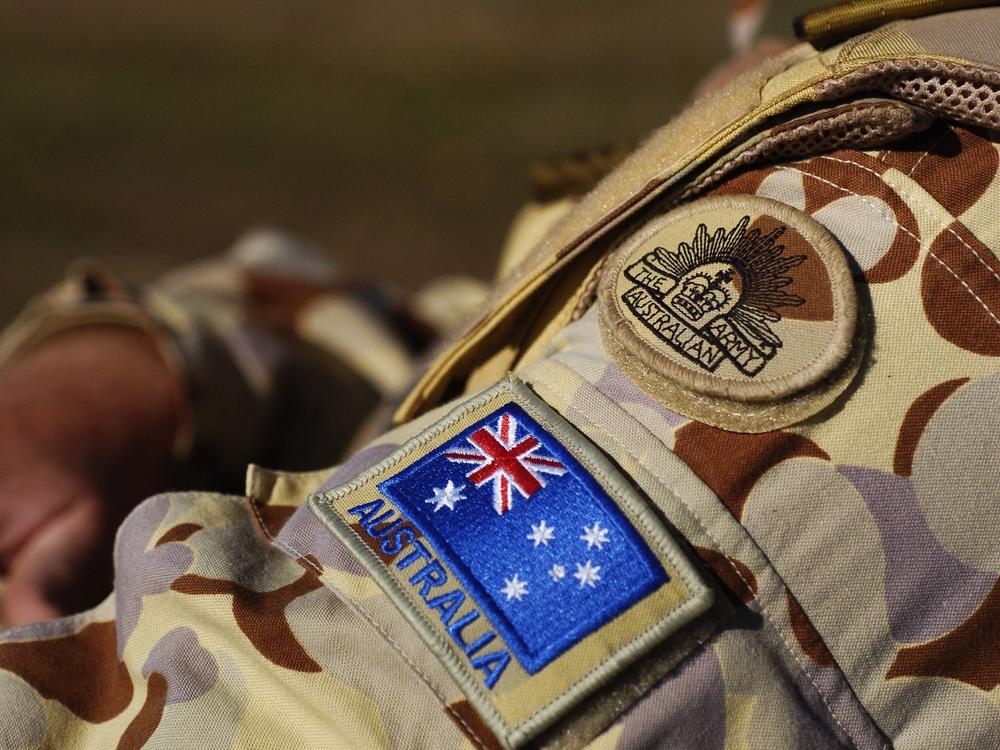Section Branding
Header Content
As the U.S. confronts a rising China, one country is right in the middle
Primary Content
This month, Australia struck a deal with the U.S. and the U.K. to acquire nuclear-powered submarine technology. It's a big moment for the country that, having found itself caught between two world powers, has decisively taken sides.
Who are they? The Australians — aka a key pillar in the United States' strategy to counter an increasingly powerful China.
- The country of about 26 million people has long been one of America's closest and most reliable allies, participating in numerous U.S. conflicts — from Vietnam to Iraq and Afghanistan. It is part of the five eyes intelligence sharing pact, and hosts U.S. forces on its territory.
- Australia has had increasingly fraught relations with China — on everything from claims that China has interfered in Australian politics, to calls from Canberra for an international investigation into the origins of COVID-19. China has not taken kindly to these assertions and has tried to punish Australia by cutting off trade ties. China is Australia's largest trade relationship.
- Under the new submarine deal, Australia will buy U.S. subs in the short-term and build their own in the coming decades. It's the first time since the 1950s — and only the second time ever — that the U.S. has shared this sort of tech with another country.
What's the big deal? Apart from how rare a move like this is for the U.S., it also signals the importance the Biden administration places on Australia.
- The maneuvering and shoring up of alliances by the U.S. are nothing new, but analysts say what is evolving is Australia's role in this dynamic.
- "While America has a ton of allies, and even more partners around the world, we have a much narrower list of those who are both capable and willing to make sure that they step up to provide stability for the region," Charles Edel, of the U.S. think tank Center for Strategic and International Studies, told NPR's Steve Inskeep.
- And it comes as China's President Xi Jinping visited Russia this month, cementing his country's ongoing and important relationship with President Vladimir Putin.
- Meanwhile, the rhetoric between China and the U.S. has been heating up. Earlier this month, China's new foreign minister, Qin Gang, warned the U.S. was on a path toward "conflict and confrontation."
What are people saying?
Edel on the deal, and China's reaction:
Submarines are only the tip of the iceberg here. We're also talking about a series of collaborations in cyber, in artificial intelligence, in quantum, on unmanned underwater vehicles — a host of different technologies.
I think from Beijing's perspective, Australia is a bit of a puzzling case because it's a smaller state. And because they have prospered it doesn't exactly make sense from a Chinese perspective why the Australians have asserted their own sovereignty quite so strongly. And frankly, I think the reason why you've seen such anger emanating from Beijing is not so much what Australia has done, but the fact that Australia as a middle-sized democratic power, has set an alternative example about how states can stand up, protect their own sovereignty, and not simply buck to the demands of the Chinese state.
Australian Prime Minister Anthony Albanese, alongside President Joe Biden when the deal was announced:
Today, what we've really done is just to demonstrate a next chapter in our history together ... I think it is very important, very significant that you have agreed for just the second time in history to share this technology. And I think it will make a difference in advancing security and stability in the region.
President Joe Biden, when the submarine deal was announced:
Today, as we stand at the inflection point in history, where the hard work of announcing deterrence and enhancing stability is going to reflect peace and stability for decades to come, the United States can ask for no better partners in the Indo-Pacific where so much of our shared future will be written.
Want to understand the world a bit better? Listen to the Consider This episode on what young Iraqis want 20 years after the war began.
So, what now?
- Competition and rivalry between the U.S. and China are now entrenched, setting the stage for the years to come. At the same time, the two countries are still economically entwined, with trade remaining strong.
- Former Australian Prime Minister Kevin Rudd has this week taken up his new posting as the country's ambassador to the U.S., and has recently warned against expecting China to soften its "ideological cleavage with the West."
- And Australia is far from the only place the U.S. is focused on, with Vice President Kamala Harris departing on Saturday for a week-long trip to Africa to counter Chinese influence there.
Learn more:
- Biden is selling U.S. nuclear submarines to Australia to counter China
- The leaders of China and Russia have finished talks. Here are some takeaways
- Following the U.S., Australia says it will remove Chinese-made surveillance cameras
Copyright 2023 NPR. To see more, visit https://www.npr.org.



